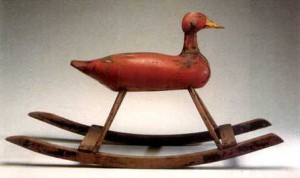 Richard M. Dorson was the pre-eminent professor of folklore until his death in 1981. In a 1960 critique of Dorson’s book American Folklore a Harvard professor of American Civilisation wrote that folklore was, “The most sentimental, and the most anti-intellectual scholarly discipline in America today.”
Richard M. Dorson was the pre-eminent professor of folklore until his death in 1981. In a 1960 critique of Dorson’s book American Folklore a Harvard professor of American Civilisation wrote that folklore was, “The most sentimental, and the most anti-intellectual scholarly discipline in America today.”
The word “folklore” was first coined in 1846 and began as a study of antiquities. In the public mind it appears largely to be viewed as either a subject for scholars or vaguely as something to do with ancient Greek myths and legends. Others might associate folklore with folksongs, with ancient ballads, with Native Indian tales or with tall stories.
Folklore is all of these things but it is much more and a great deal of it relates to our daily lives. It is Granny’s memories and what was passed on to her from her mother, Aunt Mary’s quilt and rug patterns and it is mother’s family recipes and home cures. It is also Uncle Albert’s fresh-water well and why he doesn’t line it with cedar… It is song parodies, riddles, jokes, and shaggy-dog stories. It is what landmarks coastal fishers recognize, and what they call them and why. It is the stories of loggers and miners and their work-a-day language, the fiddle tunes of British Columbia, the planting seasons in the Peace District and the Chilkat blankets of the north-west. It is the tales of hardship and humour of British Columbia’s lesser known communities such as the Finns and the Hawaiians who came here in the 19th century and brought with them their folktales and traditions. It is cowboy poetry, wooden logging truck models and the Morris Dancing traditions of British immigrants. True folk art still exists and is still being newly created, and yet all of these things only scratch the surface of what folklore and folklife is all about.
Folklore is common to all people. Understanding, appreciating and sharing another culture’s folklore transcends race, colour, class, and creed more effectively than any other single aspect of our lives and, as an element of our past and present society it is something we can all relate to. Its value is no less than any other part of our history and heritage and as such must be documented and preserved as a legacy for our future.
That being said, it is almost impossible to give a succinct definition of folklore.
It is relatively easy to create an operational definition – one that describes folklore on the basis of ones own, personal interests. For instance, oral literature is one of the aspects of folklore, and by oral literature we mean such things as legends, tales, proverbs, sayings, dialect speech and folksongs. But if you are only interested in collecting proverbs your definition of folklore may be somewhat restricted.
For a proper understanding and definition of folklore and folklife it is essential to look at its separate parts. Amongst these parts are social customs, occupational folklore, oral literature and material culture.
The contents of these four main divisions, and more, is what folklore is all about.
